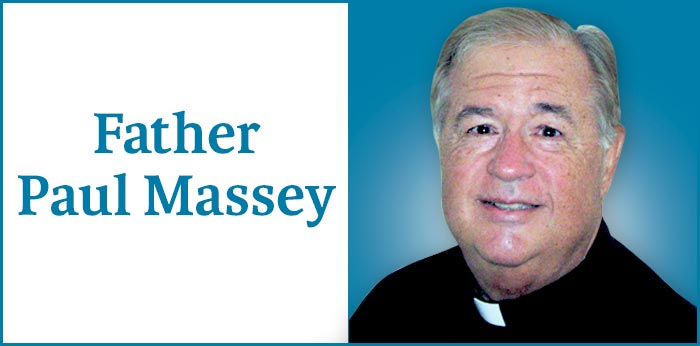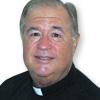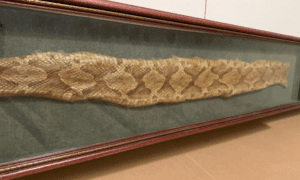DEAR FATHER PAUL: My family is attending a new church. We love it. Every Sunday the congregation is asked to stand and recite together one of the two creeds of the ancient church … either the Apostle’s Creed or the Nicene Creed.
I think its good to declare what we believe out loud. I have memorized both creeds and enjoy this time every Sunday.
I have a good understanding and agreement with all of the various things the two creeds say except for one phrase in the Apostle’s Creed. What does it mean when we say, “I believe in the Communion of Saints?” Dianne
DEAR DIANNE: Thank you for your question.
The word “creed” is an English derivative of the Latin word “credo” which simply means, “I believe.” All religions have creeds or systems of beliefs. Some are written down and available in books or on the Internet. Other religions, and even some Christian denominations, do not have written creeds. I don’t think God necessarily cares one way or the other, but I tend to prefer a creed that is written down. Some would say, “the Bible is my creed.” That’s fine until someone asks you, “so what do you believe?” It is unlikely they’ll wait patiently while you go through the entire Bible in your answer. For that reason, and others, I like short, written creeds.
In the history of the Christian faith, written creeds became important early on, especially to the church’s leaders. There were two reasons for this. First, the early church was growing very rapidly throughout the Roman Empire. Tens of thousands of people were curious about this “New Faith.” Remember, there were no Bibles in those days. Because of this, the early Christians very urgently needed a short, simple and accurate statement that could answer the question that everyone was asking … namely, “what do you Christians believe anyway? Second, there was a real problem in those early days, as the Apostles Paul, Peter and John mention in their writings in the New Testament, of “false teachers” who were spreading false doctrines and beliefs that were contrary to the “true Christian faith,” proclaimed by the Apostles.
Remember, as I said earlier, the whole Bible, as we know it today, had not yet been compiled and agreed upon by the Church. So there was, indeed, much false teaching and many heresies. Written creeds helped. First, came the Apostle’s Creed about 180 A.D. and later the longer Nicene Creed in 325 A.D. They both contained short, accurate statements of the essential beliefs of the Christian faith. And, they were so simple that they could be easily understood and proclaimed by even the simplest man or woman. Plus, they helped guard against the false teaching and heresies.
So much for creeds … what about your question?
First – “The Communion of Saints” is NOT referring to Christians receiving the Lord’s Supper, or Holy Communion, important though The Lord’s Table certainly is.
Second – The term “saints” is used around fifty times in the New Testament to mean Christians or Believers in Christ. So the “Communion of Saints” then is what each Christian (Saint) has in common with … what he or she “shares” in “communion” with ALL OTHER CHRISTIANS, OR SAINTS. That includes those who have died, those who are still alive today and those who will come after us … yet will have the same salvation we have.
So what DO all of us “Saints” share and have in common anyway? Lots and lots really. To name just a few things:
We have ALL been forgiven our sins by Jesus’ death on the cross … Romans 5:10.
We have ALL been set free from the law of sin and death … Romans 8:2.
We have ALL become inheritors of eternal life … John 3:16.
We have ALL become God’s very own adopted sons and daughters … John 1:12-13.
And lastly, we have ALL become God’s handiwork to do good works that he has prepared for us on the earth … Ephesians 2:10. These are just a few. The Bible has many, many more.
Having been in nearly fifty countries on five continents it is beyond exciting for me to realize that a Christian in Germany, Uganda, India, Chile or Canada is my spiritual brother or sister. Awesome !
To all my readers. If you are unfamiliar with these two creeds, I invite you to Google them and meditate on them yourself. They will bless you.
DO YOU HAVE A QUESTION? Please email it to me at [email protected] and I will try to answer your question in the paper.
[Father Paul Massey is Canon to the Bishop of the Mid-South Diocese of the International Communion of the Charismatic Episcopal Church and is assigned to the Cathedral of Christ The King in Sharpsburg, Georgia. He serves as one of the chaplains to the Peachtree City Police Department.]











Leave a Comment
You must be logged in to post a comment.